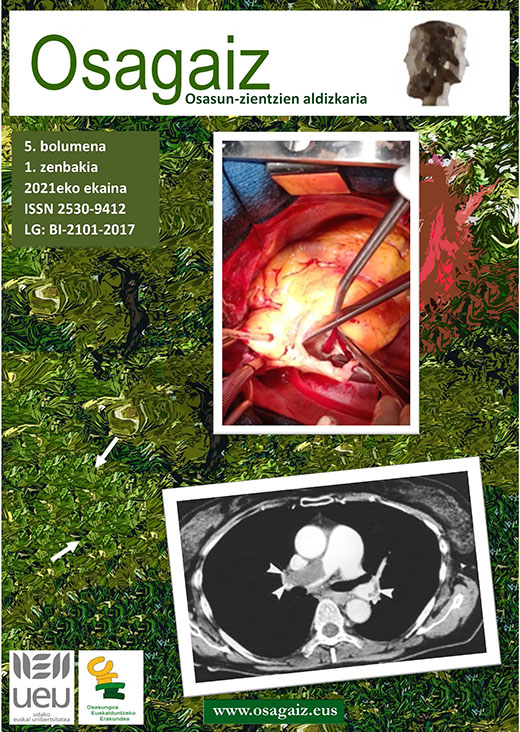Botulismoa, kasu bat oinarri hartuta
Orrialdeak: 8
Botulismoa Clostridium botulinum bakterioak sortzen duen neurotoxinak eragindako gaixotasuna da. Lotura neuromuskularretan eragiten duenez, oso larria izatera irits daitekeen sindrome klinikoa eragin dezake, arnas muskuluen paralisia eragiteraino. Kutsatzeko erarik ohikoena, elikagai bidezkoa da, agerraldi epidemiologiko gehienak elikagaiak prestatzeko metodo desegokiekin erlazionatuta egonda. Horregatik, nahitaezkoa da kasu susmagarri guztiak garaiz identifikatzea horien aurrean neurriak sasoiz hartu ahal izateko.
Donostia Unibertsitate Ospitaleko Larrialdi Zerbitzura botulismoaren susmo klinikoa zuen 23 urteko emakumea bertaratu zen, etxean egindako hegaluze-kontserba kontsumitu ondoren; azkenik Neurologiako zerbitzuan ingresatuta geratu zen. Diagnostikoa egiteko beharrezkoa da lagin kliniko batean edo elikagai susmagarriaren lagin batean toxina botulinikoa detektatzea. Era berean, kutsatuta dagoen elikagaiaren identifikazioa egitea garrantzitsua da, horrela pertsona gehiagoren kutsatzeak saihestu ahal izateko. Hori dela eta, botulismoa, osasun publikoko emergentzia eta berehala jakinarazi behar den aitortu beharreko gaixotasuna da.
Gako-hitzak: botulismoa, elikagai-intoxikazioa, antitoxina botulinikoa
Botulism is a disease resulting from the action of a neurotoxin released by the bacterium Clostridium botulinum. Due to its effect at the neuromuscular junction, it can lead to a severe clinical syndrome that may progress to weakening of the breathing muscle and respiratory arrest. The most common way of infection is the result of the consumption of contaminated food, typically related to improper methods of food preparation. Therefore, it is very important to detect all the suspected cases at an early stage so that necessary measures can be taken.
A 23 years old woman with clinical suspicion of botulism was presented in the Emergency room of Donostia University Hospital after eating a home prepared tuna can, being finally admitted to Neurology ward. For botulism diagnosis, a serum/stool sample or a sample of the suspected food-can is needed to detect and confirm the presence of botulinic toxin. Additionally, it is crucial to identify the poisoned products to avoid more infected cases. Thus, botulism is a notifiable disease and should always be reported to a public health institution.
Keywords: Botulism, foodborne diseases, botulinum antitoxin
Aldizkari honetako artikuluak deskargatzeko webgunean login egin behar da:
Sartu
